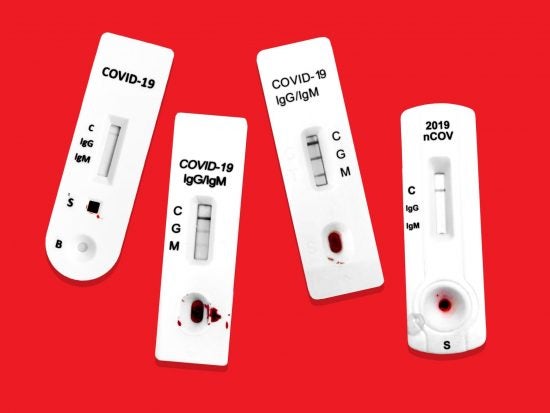The COVID-19 pandemic is far from over, but lockdowns are unsustainable. Policymakers are desperately searching for new policy tools that will allow economies to get back up and running while diminishing the risk to the vast majority of the population still vulnerable to coronavirus. One solution being discussed in the US, the UK, Germany, Chile, Estonia, and elsewhere is the use of immunity certificates. These certificates would be issued to those who test positive for COVID-19 antibodies, indicating that they are (presumably) immune and can safely go back to “normal” life without concern that they might contract the virus or pass it on to others. The immunity certificate strategy poses a host of serious legal and ethical dilemmas that would need to be resolved before the policy could be implemented fairly without infringing upon rights or creating perverse incentives. At the moment though, there is a more immediate and fundamental problem: we simply don’t have the science and testing technology to back it up yet.
WHO warns that “there is not enough evidence… to guarantee the accuracy” of immunity certificates, so their use “may therefore increase the risks of continued transmission.” Likewise, NIH strongly recommends against the use of serologic testing to determine whether a person is immune. There are a few reasons for this. First, we can’t yet be confident that people who test positive for COVID-19 antibodies are truly “safe” because we don’t know the quantity of antibodies needed to confer immunity, how robust the protection is, and how long it lasts.
Second, we need better antibody tests. The tests currently in use haven’t been approved by regulatory agencies, meaning we don’t know how accurate they are. In fact, on Tuesday, the FDA revoked the Emergency Use Authorization for one company’s antibody test due to accuracy problems. One concern is that the tests may confuse antibodies for other coronaviruses with COVID-19 antibodies, falsely telling people that they’ve had COVID-19 when they’ve only had a common cold. The value of these tests also depends on what percentage of the population has been infected. Where that number is very low (say 1%), even tests that have a relatively low rate of false positives (say 4%) will still return more false positives than true positives.
The bottom line: using the antibody tests we have now will lead to tens or hundreds of thousands of people walking around thinking that they’re protected when they aren’t. The risk of false positives can be mitigated by requiring two positive tests for a certificate, but that requires performing double the number of tests. And where lab capacity is limited, conducting large numbers of antibody tests may mean conducting fewer diagnostic tests. Diagnostic testing—identifying individuals who are currently infected—must be the priority because testing, contract tracing, and isolating/quarantining those who are sick/exposed is the only way, short of lockdowns, to stop the spread of the virus.

Photo Credit: Stephanie Baker, Bloomberg
The disconnect between the current scientific reality and political enthusiasm for immunity certificates is jarring. Even while acknowledging the lack of a scientific and technological foundation for immunity certificates, governments (and the private sector) appear to be forging ahead with an immunity passport strategy. For example, Estonia is currently testing a digital immunity passport app, with the UK a few steps behind. Officials in both countries are careful to reassure that these are only preliminary, preparatory steps to develop the technological infrastructure that would be needed to implement the policy “when the science says it’s right.” But sunk costs are a powerful policy driver. Once the infrastructure is built, it’s far easier and more tempting for governments to use it than to hold in wait for sound science, much less to revisit the premise of whether it should be used in the first place. And it’s particularly concerning that, within governments, the technical preparation for immunity certificates is not being accompanied (as far as I’ve seen reported) by ethical debates about how they could be deployed without creating an epidemiological class system and a perverse incentive for people to get infected. Until we have the science to know whether immunity certificates are a viable strategy, policymakers would be better off putting their energy and resources into fighting COVID-19 with the proven tools we already have at hand. Ready to build some infrastructure? Focus on contract tracing.



